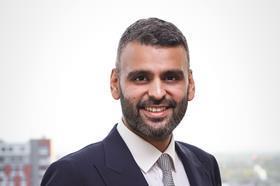Who? Jatinder Paul, partner, Irwin Mitchell, Birmingham.

Why is he in the news? Represented Peter Griffiths in a holiday sickness claim against tour operator TUI. The Supreme Court ruled last week that Griffiths, who presented uncontested expert evidence and then lost his case, was denied a fair trial (see Legal Update, p23).
Thoughts on the case: ‘Following almost 10 years of litigation, I am delighted that the Supreme Court has ruled that Mr Griffiths did not receive a fair trial and have decided in his favour, as well as clarifying that the expert evidence presented was sufficient to establish that he, on the balance of probabilities, contracted his illness at the hotel due to a breakdown in hygiene standards.
‘While the objective has always been to secure justice for my client, the judgment provides guidance to the courts on how to grapple with unchallenged expert evidence in civil litigation, not just in travel cases, to ensure fairness for all parties at trial. The judgment confirms that the expert report relied upon by Mr Griffiths was sufficient and, in the absence of proper challenge on cross-examination, it was not fair for TUI to advance criticisms of the expert evidence in closing submissions.’
Dealing with the media: ‘Fortunately, my firm has a very effective PR team who assist our lawyers in disseminating information effectively to the outside world about the very important, and often groundbreaking, work that we do to change our clients’ lives for the better. So in short, we have some incredible PR professionals who do most of the hard work! However, in this case, as the judgment was embargoed for some days prior to the formal handing down by the court, I was left alone to prepare our communications, articles and media statements, so that we were ready to issue our messaging immediately allowing the legal team to focus on our client. I am already a big fan of our PR team, but in those days prior to handing down, I really realised how amazing they are. I also realised that if my legal career ever failed, journalism might be next.’
Why did you become a lawyer? ‘I work only with claimants, who are often at the lowest point in their lives after serious injury. I appreciate the cliche, but I wanted to make a positive contribution to society in helping to change lives.’
Career high: ‘Griffiths v TUI is obviously up there but becoming a partner in the country’s leading personal injury practice was certainly a special moment for me and my family.’
Career low: ‘The Griffiths v TUI case has yielded highs and lows along the way, but having to tell Mr Griffiths that TUI had won in the Court of Appeal was one of the most difficult conversations I’ve had with a client































1 Reader's comment